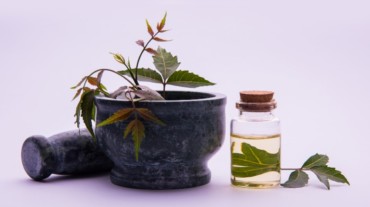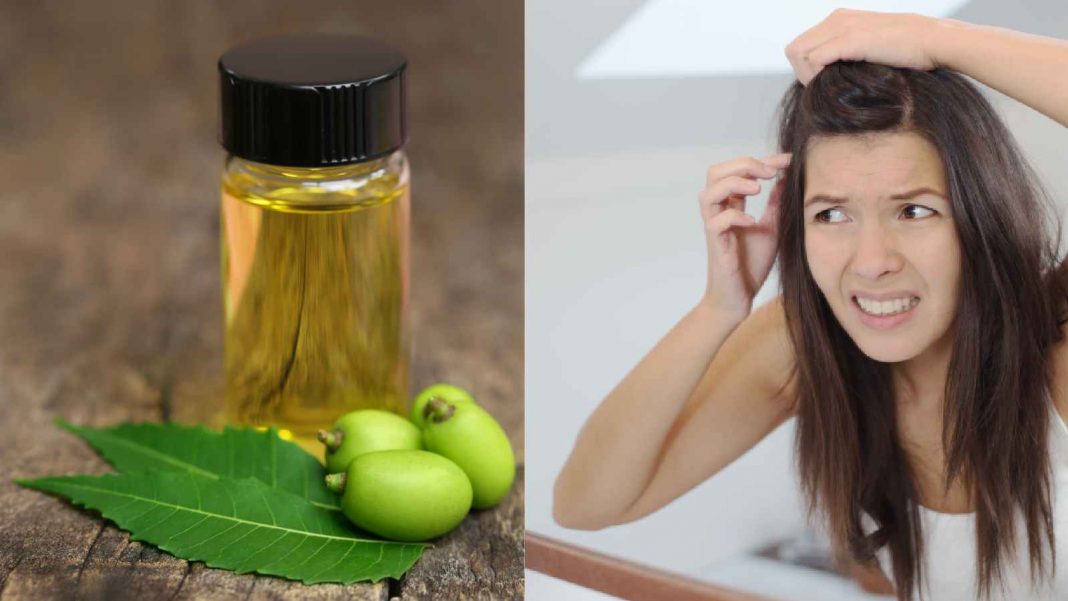Every time I used to come back from school, some tiny, tenacious creatures would crawl all over my scalp, causing it to itch non-stop. At once, my mother recognised that lice had made camp on my head. The moment she knew, she tried everything she could to get rid of lice as soon as possible. She had multiple remedies up her sleeve. But neem oil for lice treatment worked the best.
It goes without saying that Indian households are filled with natural solutions that help you get rid of various problems. Neem is one such natural herb that contains medicinal properties that offer numerous benefits. While it’s true that the wondrous leaves can provide several benefits for your overall health, can neem help get rid of lice? Let’s find out if my mother’s remedy for lice gets a thumbs-up from experts or not!

Does neem oil for lice work?
Neem or Azadirachta indica is a tree found in India. It has been used for centuries in the Indian subcontinent because of the many medicinal properties it contains. A study published in the Pharmacognosy Review found that neem has been used as a remedy to treat infections, pain, and fever. Since it contains antifungal, antibacterial and insecticidal properties, neem is a popular remedy used to combat lice, says Dr Rinky Kapoor, Consultant Dermatologist, Cosmetic Dermatologist and Dermato-Surgeon, The Esthetic Clinics.
Neem oil, derived from the seeds of the neem tree, contains compounds like azadirachtin that are known to disrupt the life cycle of lice. It further suffocates adult lice and even inhibits the hatching of their eggs. In short, it is an effective remedy to get rid of lice.
Neem oil may work for some people, but its effectiveness can vary. Some individuals may find it helpful in combination with other lice treatments or as a preventive measure.
How to use neem oil for lice?
Here’s how you can use neem oil to get rid of those persistent, tiny intruders known as lice.
1. Dilute some neem oil with a carrier oil like coconut or olive oil to reduce its potency as it can be harsh on the scalp.
2. Apply the mixture to the scalp and hair, focusing on the affected areas.
3. Leave the mixture on for a few hours or overnight.
4. Comb through the hair with a fine-toothed lice comb to get rid of dead lice and nits (lice eggs).
5. Shampoo and rinse thoroughly to get rid of the residue.
Select Topics of your interest and let us customize your feed.
The expert recommends repeating the process as and when required as lice can be stubborn, and nits can be resistant to treatment.

Are there any side effects of neem oil for lice treatment?
While neem oil can be an effective remedy for lice, there are certain things you should be mindful of. The expert says that some individuals could be sensitive or allergic to neem oil, so it is crucial to do a patch test on a small area of the skin to avoid any complications. Leave it for a while and only continue using it if you don’t experience any problems like itching or a burning sensation.
You should also avoid ingestion as it can lead to problems. Ingesting neem oil can prove to be toxic when consumed. You may experience symptoms such as vomiting, diarrhea, drowsiness, loss of consciousness, and more serious symptoms if not attended immediately.
Takeaway
Neem oil is a natural option for lice treatment, but its effectiveness may vary from person to person. It is more effective when it is combined with a carrier oil such as coconut oil and applied directly to the scalp. However, it is important to exercise caution, perform a patch test, and consult a healthcare professional if the problem persists. Plus, you should check with a doctor if you have concerns about using neem oil on your scalp, especially for children. You should avoid ingesting it or if you have allergies.







